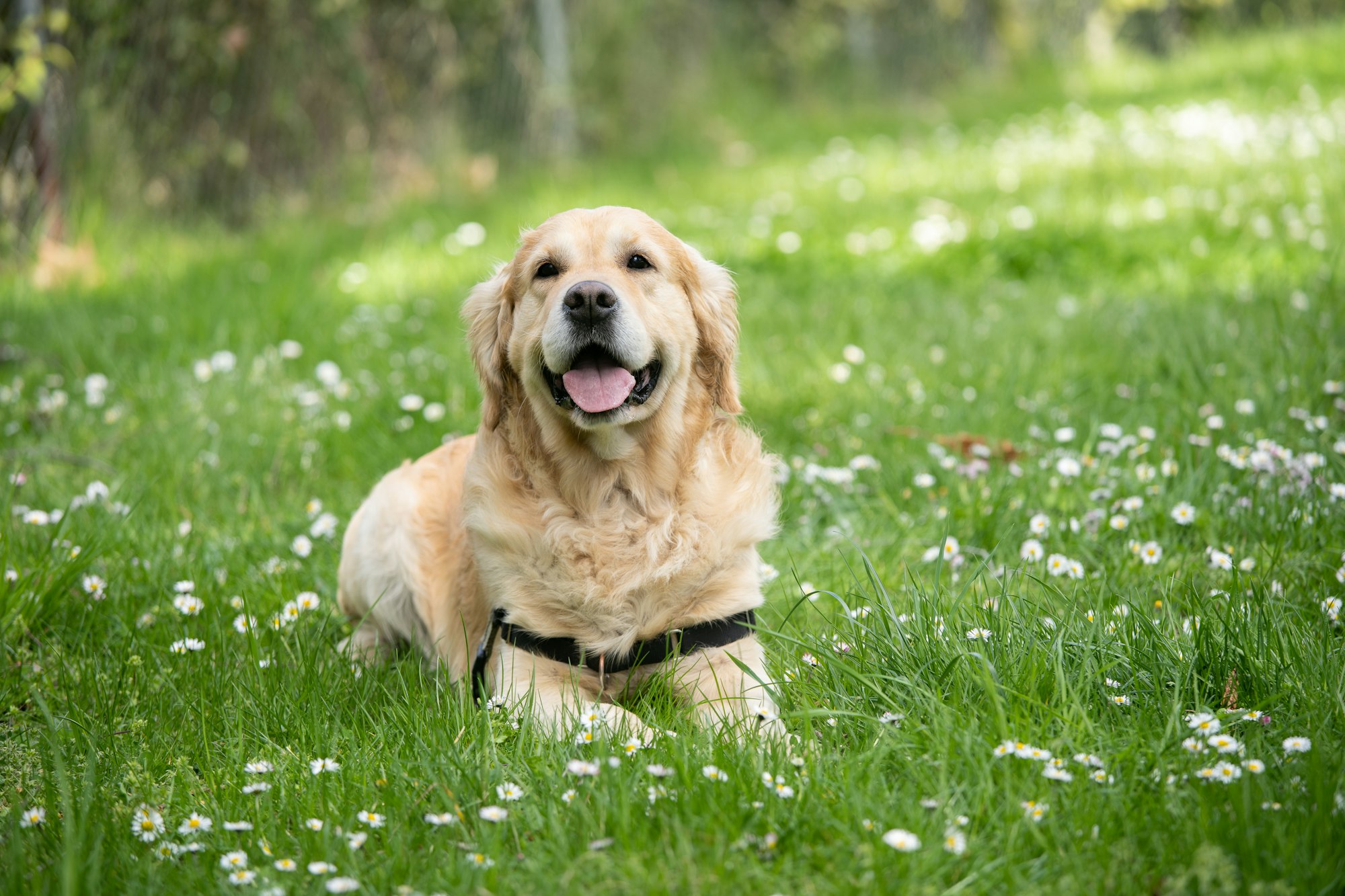As dog lovers, we cherish our four-legged companions and strive to provide them with the happiest, healthiest lives possible. One crucial aspect of canine well-being is understanding and mitigating the risks of diseases, especially cancer. In this article, we'll delve into the fascinating realm of dog breeds with lower cancer rates, exploring the genetic, environmental, and lifestyle factors that contribute to their resilience against this devastating disease.

Understanding Cancer in Dogs
Cancer, a formidable adversary in both humans and our beloved canine companions, demands our vigilant attention. In dogs, this affliction is unfortunately prevalent, manifesting in various forms and impacting their health and longevity. Understanding the intricacies of cancer in dogs is paramount for conscientious pet owners.
Canine cancer, much like its human counterpart, is a complex and multifaceted challenge. Dogs can develop various types of cancer, affecting organs, tissues, and systems throughout their bodies. This includes but is not limited to lymphoma, osteosarcoma, mammary gland tumors, and melanoma. The prevalence of cancer in dogs underscores the necessity of proactive measures for prevention, early detection, and effective treatment.

The critical question that arises is: why are some dogs more susceptible to cancer than others?
Importance of Choosing the Right Breed
The breed of a dog plays a pivotal role in its predisposition to certain health conditions, including cancer. Genetics significantly influence a dog's susceptibility to various diseases, and this holds true for cancer as well. Different breeds carry distinct genetic markers that can either increase or decrease the likelihood of developing cancer.
Choosing the right breed becomes an essential consideration for dog owners committed to providing the best possible quality of life for their pets. Certain breeds exhibit a lower predisposition to cancer, making them attractive choices for those seeking to minimize the risk of this debilitating disease. Labrador Retrievers, Australian Shepherds, Boxers, and Beagles are among the breeds known for their lower cancer rates.
Understanding the genetic makeup of specific breeds allows for a more informed decision-making process. Responsible breeding practices, which emphasize the health and well-being of the animals, contribute to the creation of canine companions with a reduced vulnerability to cancer.
Breeds with Lower Cancer Rates
In the realm of canine health, the breed of a dog is a decisive factor in its susceptibility to various ailments, including cancer. While cancer can affect any dog, irrespective of breed, certain breeds exhibit notably lower cancer rates. This invaluable insight into breed-specific health predispositions empowers dog owners to make informed decisions for the well-being of their furry companions.
Labrador Retrievers

Among the most revered and popular dog breeds, Labrador Retrievers stand out not only for their amiable temperament and intelligence but also for their commendably lower rates of cancer. Their robust genetics contribute to a decreased susceptibility to this pervasive disease, making them an excellent choice for families seeking a companion with enduring health.
Australian Shepherds

Known for their agility, intelligence, and striking appearance, Australian Shepherds are another breed that boasts lower cancer rates. This could be attributed to a combination of their active lifestyle, which promotes overall well-being, and a genetic makeup that confers resilience against certain forms of cancer.
Boxers

Boxers, characterized by their distinctive appearance and playful nature, are recognized not only for their loyalty but also for their lower predisposition to cancer. Their sturdy build and well-balanced genetics position them as a breed less prone to succumb to the challenges posed by this insidious disease.
Beagles

With their friendly disposition and keen sense of smell, Beagles have endeared themselves to many families. Beyond their endearing qualities, Beagles exhibit lower cancer rates, making them a preferred choice for those who prioritize the long-term health of their four-legged companions.
Understanding the breeds with lower cancer rates goes beyond mere statistics; it's about recognizing the intricate interplay between genetics, lifestyle, and overall well-being. While no breed can guarantee immunity from cancer, opting for a breed with a historically lower predisposition is a proactive step toward fostering a healthier and happier life for your canine friend.
In summary, when considering a furry addition to your family, the choice of breed extends beyond aesthetic preferences and size considerations. It becomes a deliberate decision to enhance the odds of a long and vibrant life for your canine companion. By choosing a breed with lower cancer rates, you not only invest in the health of your dog but also contribute to the collective knowledge aimed at mitigating the impact of cancer in our cherished pets.
Genetics and Cancer Resistance
Understanding the intricate relationship between genetics and cancer resistance in dogs is paramount for conscientious pet owners. Genetic factors play a pivotal role in determining a dog's susceptibility to various diseases, including cancer. While no breed is entirely immune, certain genetic markers contribute to a breed's inherent ability to resist the development of cancer.
Genetic research has revealed specific traits and markers associated with lower cancer rates in certain breeds. This invaluable knowledge empowers breeders and owners alike to make informed decisions, aiming to perpetuate and enhance genetic resilience against cancer. Recognizing the hereditary aspects of cancer resistance is a crucial step toward developing strategies for preventing and managing this pervasive disease in our canine companions.
Lifestyle and Environmental Factors
Beyond genetics, a dog's lifestyle and environmental factors significantly impact its susceptibility to cancer. Environmental toxins, exposure to carcinogens, and living conditions all contribute to the overall cancer risk in dogs. Understanding these factors allows pet owners to implement preventive measures and create an environment that minimizes the potential triggers for cancer development.
An active lifestyle, regular exercise, and a well-maintained living environment can contribute to a dog's overall health and resilience against diseases, including cancer. Pet owners should be vigilant in providing a safe and stimulating environment while minimizing exposure to potential hazards. By addressing lifestyle and environmental factors, owners can actively participate in reducing the risk of cancer in their canine companions.
Nutrition and Its Role
The role of nutrition in preventing and managing cancer in dogs cannot be overstated. A well-balanced and nutritionally rich diet is a cornerstone of canine health. Specific dietary components, such as antioxidants and certain vitamins, have been linked to cancer prevention.
Providing dogs with a diet tailored to their breed, size, and individual health needs is crucial. Certain breeds may benefit from diets that emphasize cancer-fighting nutrients. Additionally, avoiding excessive amounts of processed foods and ensuring proper hydration are essential aspects of canine nutrition that contribute to cancer resistance.
Exercise and Regular Vet Check-ups
Maintaining a dog's health involves more than just genetic considerations and environmental factors; it extends to their daily routine and healthcare practices. Exercise and regular veterinary check-ups are two pillars of preventive healthcare that significantly contribute to a dog's overall well-being and resilience against diseases, including cancer.
Exercise: Regular physical activity is not just a means to keep a dog fit; it plays a pivotal role in preventing various health issues, including cancer. Exercise helps regulate weight, promotes cardiovascular health, and boosts the immune system. Breeds with lower cancer rates often share a commonality—an active lifestyle. Whether it's daily walks, playtime, or more vigorous activities, incorporating exercise into a dog's routine is a proactive measure in promoting their longevity and health.
Regular Vet Check-ups: Routine veterinary check-ups are indispensable for early detection and intervention. Regular examinations allow veterinarians to monitor a dog's overall health, identify potential issues, and provide preventive care. From vaccinations to screenings, these check-ups contribute to the early detection of abnormalities or signs of cancer. Timely interventions, guided by professional veterinary assessments, can significantly impact a dog's prognosis and quality of life.
In essence, exercise and regular vet check-ups are not optional components of responsible pet ownership—they are essential practices that actively contribute to a dog's cancer resistance. By prioritizing these aspects of canine care, owners are taking concrete steps toward fostering a healthier and happier life for their four-legged companions.

Choosing the Right Breed for Your Lifestyle
Selecting a canine companion is a decision that transcends aesthetic preferences; it requires careful consideration of lifestyle compatibility. The choice of a dog breed profoundly influences the dynamics of the human-canine relationship and, crucially, the overall well-being of the happy dog. To ensure a harmonious match, it is imperative to align the characteristics and needs of the chosen breed with the owner's lifestyle.
When choosing the right breed, factors such as size, energy levels, exercise requirements, and temperament must be taken into account. For instance, an active family with outdoor pursuits may find breeds like Labrador Retrievers or Australian Shepherds well-suited to their lifestyle, given these breeds' predisposition to lower cancer rates. Conversely, a more sedentary lifestyle might be better complemented by a smaller, less active breed.
A thoughtful and informed decision regarding the choice of breed sets the stage for a fulfilling and enduring companionship. It ensures that the dog's needs are met, reducing stressors that may contribute to health issues, including cancer.
Responsible Breeding Practices
The role of responsible breeding practices cannot be overstated when it comes to promoting the health of future generations of dogs. Beyond considerations of appearance and breed traits, responsible breeders prioritize the overall health and genetic well-being of the animals they produce. By screening for genetic markers associated with lower cancer rates and adhering to ethical breeding standards, responsible breeders contribute significantly to the creation of resilient and healthy canine companions.
Irresponsible breeding practices, on the other hand, can perpetuate genetic predispositions to diseases, including cancer. It is incumbent upon breeders to prioritize health over aesthetics and to engage in practices that enhance the genetic diversity and vigor of the breeds they work with. This commitment to responsible breeding is an investment in the long-term well-being of dogs and a pivotal step in the collective effort to mitigate the impact of cancer.
Tips for Cancer Prevention in Dogs
Preventing cancer in dogs requires a multifaceted approach that encompasses various aspects of their lives. Here are practical tips for dog owners to actively contribute to the prevention of cancer in their furry companions:
- Balanced Diet: Provide a nutritionally balanced diet that meets the specific needs of the breed. Antioxidant-rich foods, such as fruits and vegetables, can contribute to overall health.
- Regular Exercise: Maintain a consistent exercise routine tailored to the dog's breed and energy levels. Regular physical activity promotes overall well-being and can reduce the risk of cancer.
- Routine Vet Check-ups: Schedule regular veterinary check-ups to monitor the dog's health and detect any abnormalities early on. Early intervention is key in managing and preventing cancer.
- Avoid Environmental Toxins: Minimize exposure to environmental toxins, such as pesticides and household chemicals, which may contribute to cancer development.
- Spaying/Neutering: Consider spaying or neutering, as it has been linked to a reduced risk of certain cancers, particularly reproductive cancers.
Common Signs of Canine Cancer
Recognizing the early signs of cancer is vital for prompt intervention. We'll outline common symptoms that dog owners should be aware of and discuss the importance of seeking veterinary care if any concerns arise.
The Human-Canine Bond
The health of our dogs is intricately connected to our own well-being. We'll explore how the bond between humans and canines can positively impact both parties, emphasizing the reciprocal nature of this unique relationship.

Conclusion
In conclusion, choosing a dog breed with lower cancer rates involves a combination of genetic understanding, responsible ownership, and proactive healthcare practices. By making informed decisions, dog owners can contribute to the well-being of their pets and strengthen the unique bond between humans and canines.
Frequently Asked Questions
- Are all dogs from low-cancer-rate breeds guaranteed to be cancer-free?
- While genetics play a significant role, it's essential to remember that individual dogs may still develop cancer. Regular veterinary check-ups are crucial for early detection and intervention.
- How can I ensure my dog leads a healthy lifestyle to prevent cancer?
- Maintaining a balanced diet, providing regular exercise, and scheduling routine vet check-ups are key components of a healthy lifestyle for dogs.
- What should I look for when choosing a dog breed for lower cancer rates?
- Consider the breed's genetic predisposition, lifestyle requirements, and compatibility with your living situation.
- Do mixed-breed dogs have lower cancer rates?
- It varies, as mixed-breed dogs inherit a combination of genetic traits. Responsible breeding practices and overall health still play essential roles.
- How early can canine cancer be detected?
- Early detection is crucial. Regularly monitor your dog for changes in behavior, appetite, and physical condition, and seek veterinary advice if any concerns arise.




